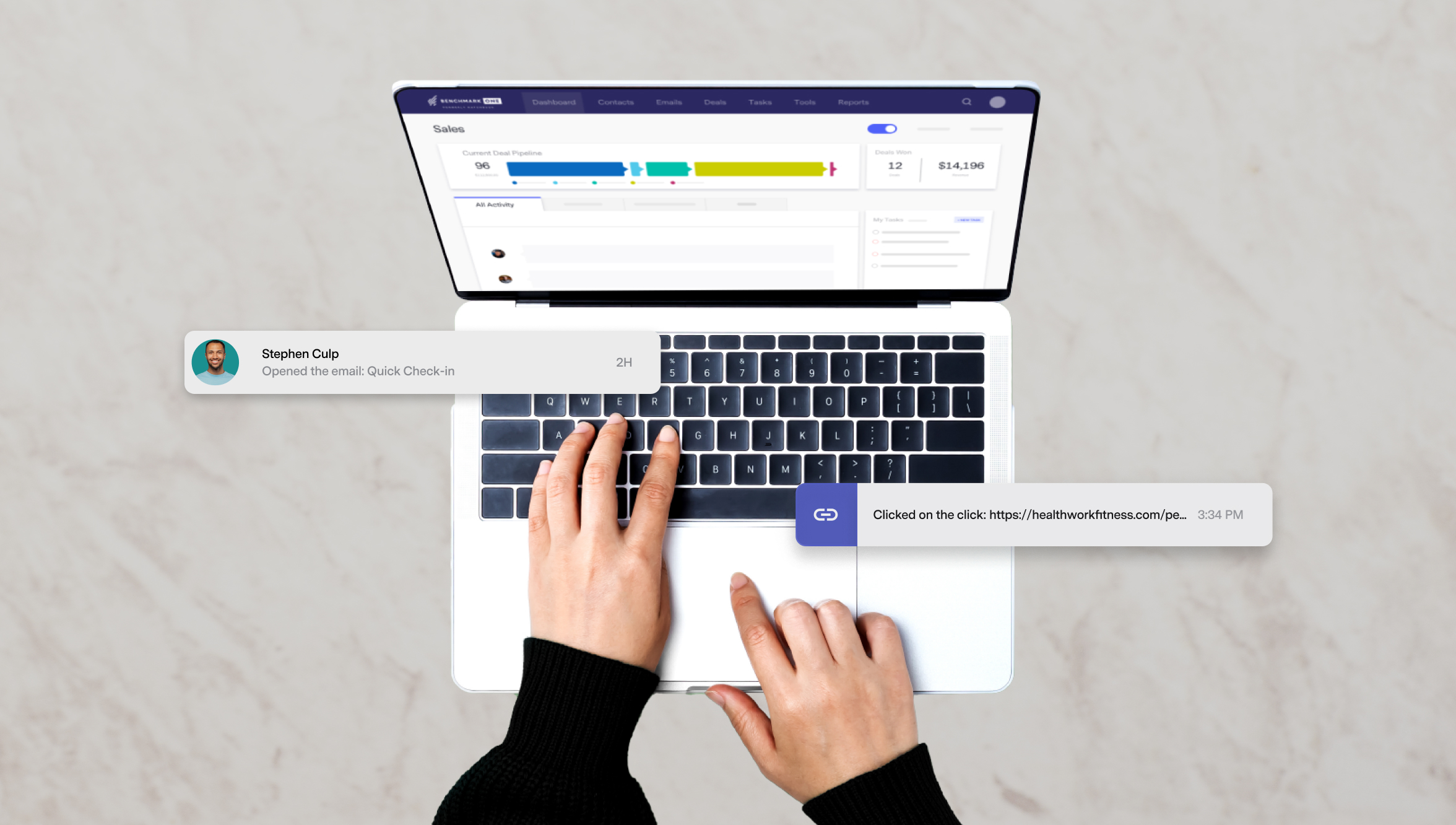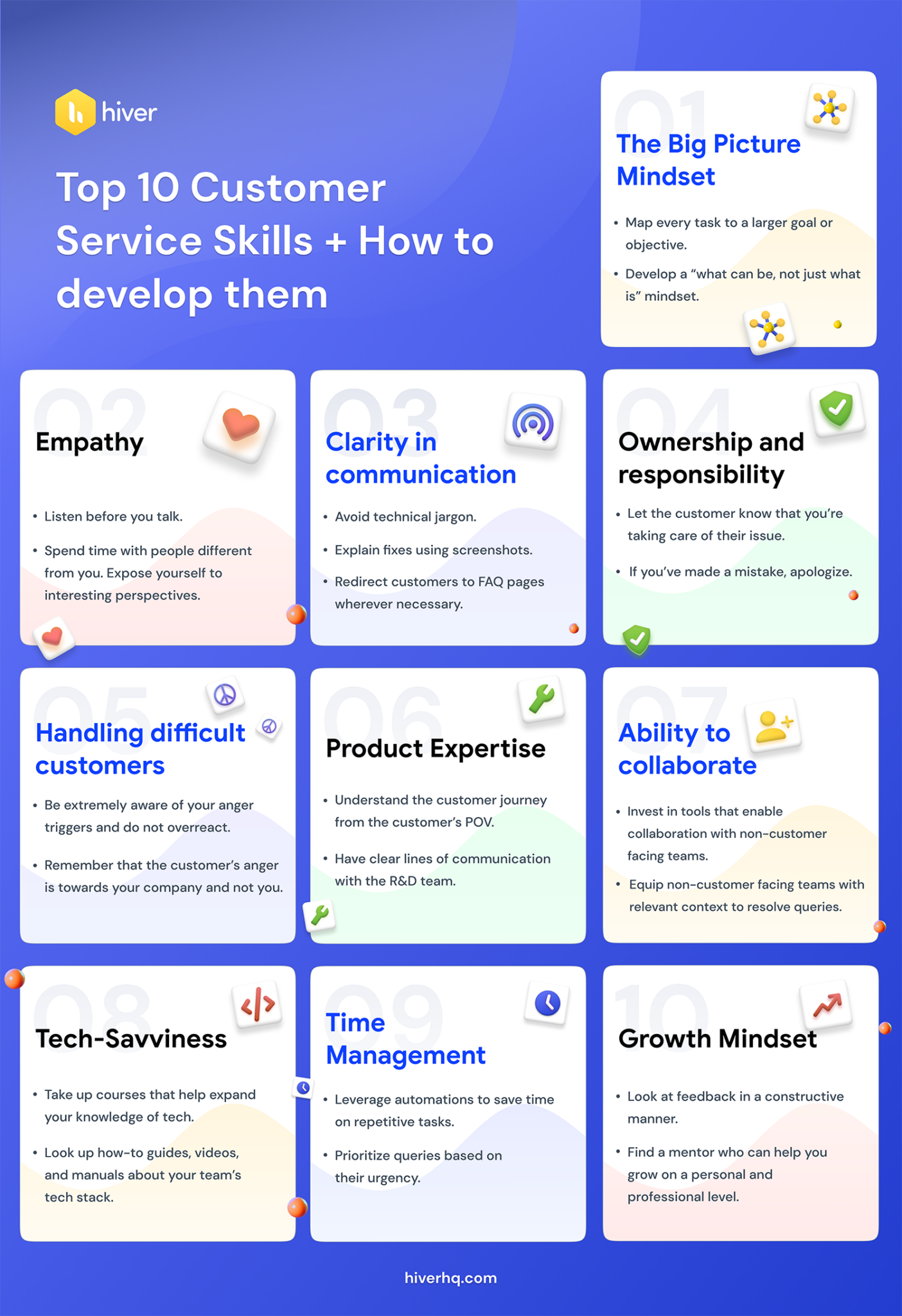
Customer service is a critical part of your small business. Based on this, it’s incredibly important to hire the right people for the job. Your customer service team will ultimately be the face of your company and the main point of human contact with your customers. Excellent customer service is the key to loyalty, retention, business growth and profits.
In other words, your customer service reps are your business’s secret weapon. Just have a look at some of the data:
- 81% of companies with strong competencies for delivering an excellent customer experience are outperforming their competition. (Peppers & Rogers Group)
- 70% of buying experiences are based on how the customer feels they are being treated. (McKinsey)
- 9 out of 10 U.S. consumers say they would pay more to ensure a superior customer experience. (Harris Interactive/RightNow)
- 7 in 10 Americans said they were willing to spend more with companies they believe provide ideal customer service. (American Express)
What is Good Customer Service?
Good customer service is an essential component of any successful business, but what exactly constitutes good customer service?
First and foremost, good customer service must be friendly and welcoming. When customers interact with your team, they should feel comfortable bringing their concerns to your attention. They should also feel that they are being listened to and that their concerns are being taken seriously. Making sure your customer service representatives are approachable and friendly goes a long way in creating a positive customer experience.
Your customer service team should also be knowledgeable and well-informed. Customers should feel like they are talking to experts who can answer all of their questions and address their concerns promptly and accurately. Taking the time to thoroughly train your team on your product/service and industry will help ensure that customers always get the answers they’re looking for.
Availability and responsiveness are two crucial aspects of outstanding customer service. Customers should be able to easily and quickly reach out to customer service representatives—and preferably always be able to receive a prompt response. This could be accomplished through various communication channels such as a dedicated phone line, email, or live chat. Customers should be able to easily and quickly reach out to customer service representatives—and preferably always be able to receive a prompt response. This could be accomplished through various communication channels such as a dedicated business phone system, email, or live chat.
Finally, though an underrated trait, customer service should be personal. Taking the time to get to know your customers and their individual needs will help you provide better customer service. This could mean offering tailored solutions or simply remembering their name when they contact you.
10 Characteristics Every Customer Service Representative Should Have
It’s clear that delivering exceptional customer service is paramount to your business’s success. And training your reps to develop the right skills is the first step to getting there. If you want to be an excellent customer service representative, here’s where you should focus your efforts:
1. Problem-Solving Skills
The number one skill you need to excel in for good customer service is problem-solving. Every other part of the job is somehow related to problem-solving abilities.
Ultimately, a customer service rep’s job is to keep your clients happy. That often includes navigating through a complex set of issues and problems to find a sufficient solution.
2. Clear Communication
Your team will have a hard time solving a customer’s problem if they can’t communicate the solution clearly. However, clear communication isn’t as easy as it sounds.
Effective correspondence means being able to put yourself in the client’s shoes and using concise explanations to get to a solution as quickly as possible. To make their job easier, companies should, in their turn, integrate office phone systems for customer support, have a secure email communication system, and avoid any potential cyber attacks.
Often, that means cutting out the jargon in favor of language that even the non-technical can understand.
In addition to communicating well with customers, your customer service reps will need to be strong communicators with your team. This means following processes and protocols for entering information into your help desk software or CRM.

3. Friendly Attitude
People hate to be treated like a number. The majority of people prefer to interact with a human when faced with issues. However, in today’s fast-paced society, customers are often seen as numbers on a spreadsheet.
The ability to stay genuine and show clients that they really matter to your business can make a whole world of a difference in their customer experience.
4. Empathy
We touched on this already. A stellar customer service rep can put herself in the customer’s shoes and understand where frustrations come from.
Empathy is necessary to offer the right solution. Often when people complain, they really just want their problem to be acknowledged and to see that you care. Being empathetic can ease frustrations and maintain your brand’s reputation.
5. Business Acumen
This might be a bit surprising since customer service usually has nothing to do with making sales. Customer service is a business role though. While you aim to solve a customer’s issue and be their advocate, at the same time, you represent the business interests of your company.
Solving a customer’s problem means finding a compromise between the two.
6. Product/Service Knowledge
The best customer service representatives have deep knowledge of how your product (or service) works. Nothing is more frustrating for a customer than having an issue and ending up on the phone with someone who doesn’t understand their problem.
This doesn’t mean that your customer service team should understand the inner workings of your product as well your technical team. However, their knowledge of it should exceed that of its everyday user.

7. Strong Time Management
Your customer service team will likely deal with multiple customer tickets at one time. Making everyone happy will require a great deal of organization and superb time management skills.
With that said, make sure your employees aren’t spread so thin that they become robots checking customers off their list.
8. Patience
Customers may not always understand how a product or service works, and they may be frustrated or upset when they reach out for help. Customer service representatives should remain calm and patient in these situations.
Many instances of bad customer interactions can be fueled by frustration on the customer’s part—making them harder to approach and quicker to anger. A good customer service rep should be able to handle these situations with care and defuse the tension.
9. Willingness to Go Above and Beyond
Going the extra mile is what sets good customer service apart from the rest. It’s about doing more than what is expected and providing customers with the best possible experience.
Companies and their customer service representatives should be willing to ensure customer satisfaction even after the problem is solved. Simple gestures like offering a discount or even just a well-meaning follow-up help show your customers that you care about them and their loyalty.
How to Hire a Customer Service Rep and Questions to Ask Candidates During an Interview
We’ve stated some important qualities above, but when seeking to hire a customer service representative, the most important qualities to consider are communication, problem solving and technical skills.
A successful customer service representative should be able to communicate effectively with customers, both orally and in writing. They must understand the importance of providing timely responses and maintaining positive relationships with clients. Also, they must have an aptitude for understanding and resolving product-related issues quickly and accurately.
To ensure hiring a qualified customer service representative for your company, you should look for candidates who have experience in an environment similar to your company. Those with previous experience in software support or customer relations may be better suited for the role than someone without any related work history.
When interviewing a candidate, it is important to ask questions that will help determine their abilities in the areas of customer service, problem solving and technical skills. Questions such as “How do you handle difficult customer inquiries?” or “What methods do you use to troubleshoot software issues?” can be used to get an idea of how a potential employee might perform in the role. Here are some more examples of questions to ask:
Questions to Ask a Customer Service Candidate in the Interview
Hiring the right people for your customer service team is critical for your customers’ satisfaction—and the success of your brand. We’ve gone over the traits of a good customer service rep, but here are ten questions you should be asking your potential hires in order to find out if they display the traits in question:
- How do you define good customer service?
- How do you handle difficult or angry customers?
- Can you describe a situation where you provided excellent customer service?
- Can you describe a situation where you found it difficult to provide excellent customer service?
- How do you handle a situation where you are unable to resolve a customer’s issue?
- What do you do to stay up-to-date on company policies and procedures related to customer service?
- How do you handle multiple customer inquiries at the same time?
- How do you maintain a positive attitude when dealing with customers?
- Can you give an example of a time when you had to go above and beyond to help a customer?
- What will you do to ensure that customers have a positive experience when interacting with our company?
These questions can help you gauge the candidate’s customer service skills, knowledge, and experience. You can also consider asking situational or scenario-based questions to see how the candidate would handle customer service challenges specific to your company or industry.
Employees should be aware of what is expected from them on a daily basis, including response time, issue resolution and customer satisfaction levels. Taking the time to define these expectations up front can help ensure a successful employee-employer relationship.
How a CRM Helps Improve Customer Service
Customer service is a skillset; however, there are crucial tools that will help your customer service team bring their support skills to the next level. Having a customer relationship management tool, like BenchmarkONE, will ensure your team can keep track of every single customer. They can log their most recent interaction on each customer’s file, which helps inform and steer the relationship moving forward. Also, your customer service team can get access to customer details that will help them offer more tailored support, ensuring each customer’s needs are truly being met.
Details your CRM tracks include:
- How your customers interact with the emails you send them
- What pages of your site they visit
- Which content they download
- How far they are in the buyer’s journey
- Their industry and business they’re associated with
- Their social media information
Using a CRM will arm your customer support team with everything necessary to offer five-star support and care, which will lead to trust, reliability, and longer-lasting customer relationships.
Want to try BenchmarkONE’s CRM without spending a dime? Request a free free account!
How Email Marketing Plays a Role in Customer Service
Email marketing can play a significant role in customer service by providing a channel for businesses to engage with their customers, address their needs, and build strong relationships. Here are some ways in which email marketing contributes to customer service:
- Communication and updates: Email marketing allows businesses to send important updates, product announcements, and changes in services to their customers. Keeping customers informed can reduce confusion and enhance their overall experience.
- Personalized content: With email marketing tools, businesses can segment their customer base and send personalized content tailored to each group’s preferences and interests. By delivering relevant content, businesses can demonstrate that they understand their customers’ needs, which enhances the customer service experience.
- Customer feedback and surveys: Email marketing can be used to collect feedback and conduct customer satisfaction surveys. Gathering insights directly from customers helps businesses understand their pain points, expectations, and areas for improvement, leading to better customer service.
- Automated responses and support: Email marketing platforms often come with automation features that allow businesses to set up autoresponders and trigger-based emails. This can be useful for acknowledging customer inquiries and support requests promptly, even if a live representative isn’t available immediately.
- Customer onboarding and education: Email marketing is an effective way to provide new customers with onboarding information and educational content about products or services they’ve purchased. This proactive approach can prevent common customer service issues and ensure customers get the most out of their purchases.
- Loyalty programs and promotions: By using email marketing to share exclusive offers, discounts, and loyalty programs, businesses can reward and retain their existing customers. This fosters a positive customer experience, reinforcing their trust in the brand.
- Handling inquiries and complaints: Customers often reach out to businesses via email to ask questions or express concerns. Responding to these emails promptly and professionally is crucial for maintaining good customer service and resolving issues efficiently.
- Order updates and shipping notifications: Email marketing enables businesses to keep customers informed about their order status and shipping details. This real-time information helps manage customer expectations and reduces the number of order-related inquiries.
- Re-engagement campaigns: Email marketing can be used to re-engage customers who have been inactive or haven’t made a purchase in a while. By sending targeted re-engagement emails, businesses can remind customers of their offerings and encourage them to come back, ultimately boosting customer retention.
Email marketing enables businesses to communicate effectively with their customers, provide personalized experiences, gather feedback, and address concerns, all of which contribute to building strong, long-lasting customer relationships.
How to Develop the Top Customer Service Skills
This infographic from Hiver expands on a few of the characteristics we mentioned above, as well as names a few others that great customer service representatives have. Take a look!
Top 10 Customer Service Skills: An Infographic by Hiver
How a Stellar Customer Service Rep Can Make A Difference
Customer service reps are essential team members in any product growth strategy because of the close interaction they have with customers. As the main point of contact for customer inquiries, a stellar customer service rep can be an invaluable asset to any SaaS company. In addition to providing immediate solutions and addressing user concerns, a great customer service rep knows how to turn those interactions into opportunities for growth.
When a customer mentions that they need more features or functions that aren’t currently offered by your product, the customer service rep can inform them of upgrade options and explain why upgrading would benefit them.
This type of conversation not only provides an opportunity for upselling but it also encourages customers to stay engaged with your product which helps increase customer retention.
A great customer service rep can also help identify and address user pain points that may have otherwise gone unnoticed. With their close interaction with customers, customer service reps are in the unique position to collect feedback from users and relay it back to the product team.
There’s a fine line between excessive and appropriate customer service efforts. The customer service reps you want on your team will possess all of these skills and become one of the most important parts of your business’s customer retention efforts.







